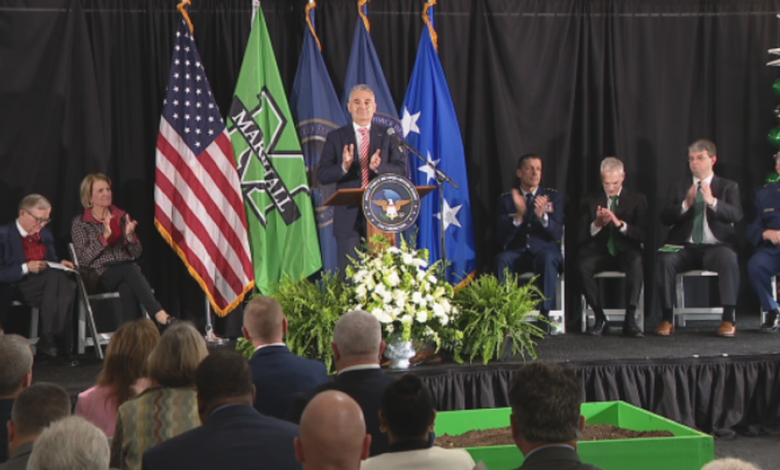Marshall breaks ground on cyber security institute, ‘East Coast hub’ for national security

HUNTINGTON, W.Va. (WCHS) — It will be known as the Marshall University Institute for Cyber Security, but it will also be home to the National Center of Excellence for Cyber Security for the U.S. Department of Defense. As university, state and federal leaders gathered to break ground on the latest construction project on Marshall’s campus, University President Brad D. Smith said this institute will change the cyber security landscape in education and in national security.
Smith said it was Marshall’s award-winning cybersecurity program that won nationals in 2020 as well as the Marshall professor, Dr. Josh Brunty, who now serves as the U.S. Cyber Team coach that opened eyes across the nation.
“That caught the attention of the Department of Defense. That caught the attention of our state leaders and congressmen, and at the end of the day they decided that Marshall University, West Virginia University, West Virginia State University and the entire ecosystem will defend the entire United States with this amazing institution we’re building right here,” Smith said.
Those with the Joint Force Headquarters of the Department of Defense Information Network (JFHQ-DODIN) said Huntington is a great location to be an “East Coast hub” for cybersecurity bringing in West Virginia University and West Virginia State for collaboration as well as Marshall. It will also provide a space for Department of Defense employees to monitor and guard the cyberspace against hackers.
The plan in the building is to have both classroom and lab space for students and office and working room for the U.S. Department of Defense with room for ways they can all work together and learn.
Lt. Gen. Robert J. Skinner, who is the United States Cyber Commander with the JFHQ-DODIN, said the cyber security threat is as prevalent today as ever threatening governments and businesses by the second. He said this institute opens the department up to new talent and in a new location.
“It’s close enough to the Washington D.C. area but not too close, so we’re able to expand the population we can leverage,” Lt. Gen. Skinner said. “There’s a lot of talent outside of big cities and that’s what we want to harvest and leverage and take full advantage of it.”
This will also help the state’s universities recruit potential students as cyber security is an in-demand profession.
The building itself was made possible by $45 million of funding from the West Virginia Legislature last summer in special session. Some of what will be set up inside will come from federal dollars.
“I’ve been working on this for several years with the DoD and others,” Sen. Shelley Moore Capito, R-WV, said. “It’s much bigger than what I could’ve imagined. It’s not going to just be a beautiful building. It’s going to have top notch creativity within it.”
Construction is expected to last until the Fall of 2026 pending any sort of construction delays. It will be built at the corner of Hal Greer and 4th Avenue in Huntington near the new business school.
“We’ve always been the first to answer the call,” Smith said. “We forged the steel. We built the roads. We manufactured the trucks. We fought the wars. When our nation needs us, we respond, and now we need to be able to defend the cyberspace and we are stepping up again as West Virginians in defending the United States of America.”



